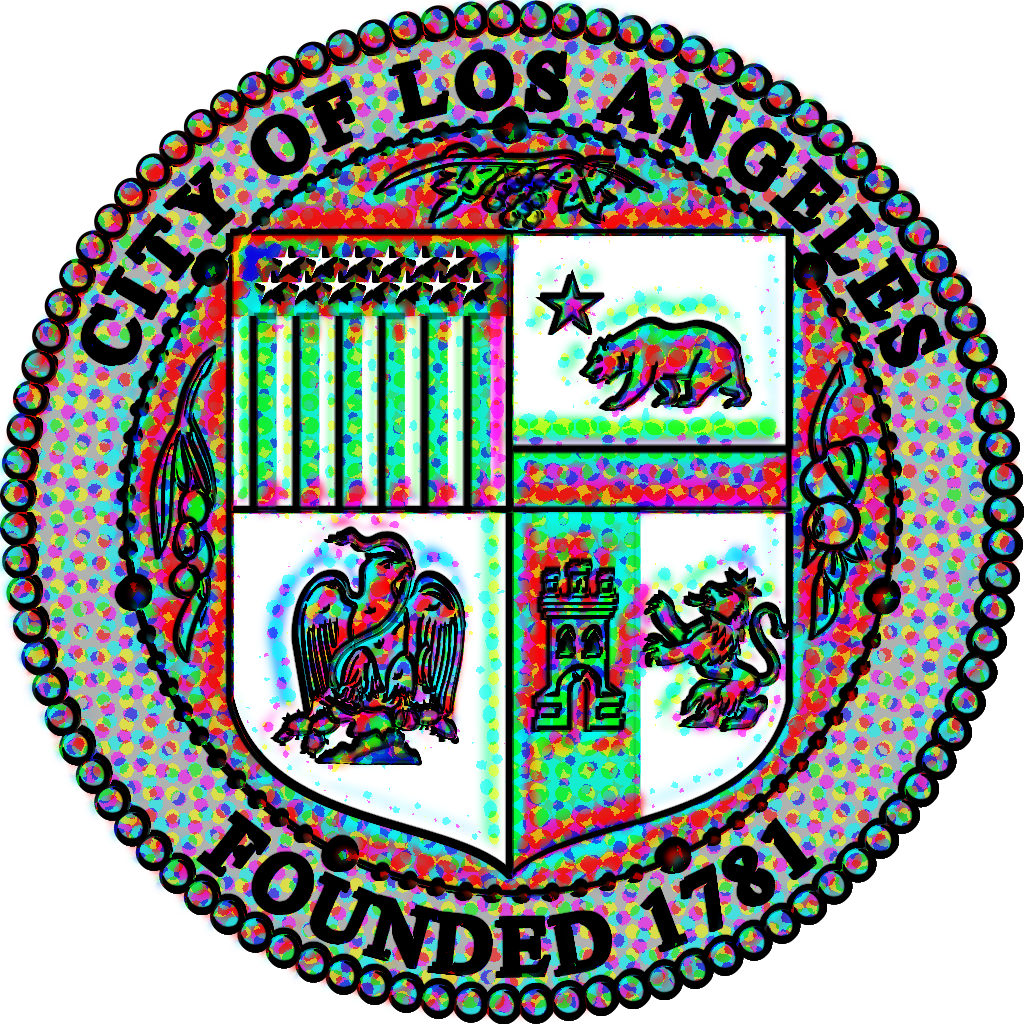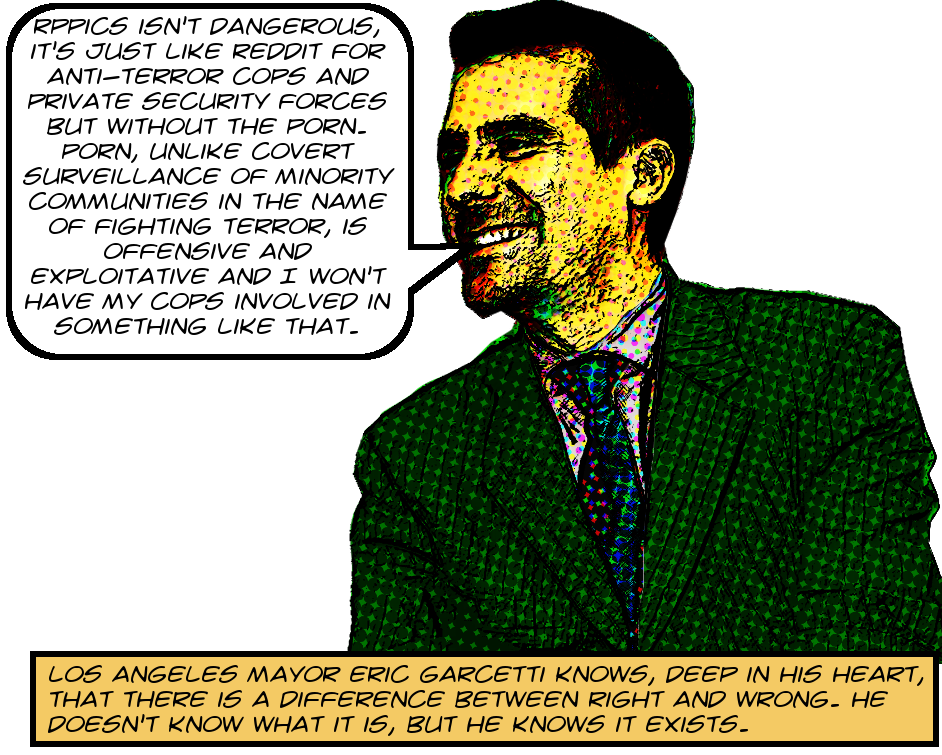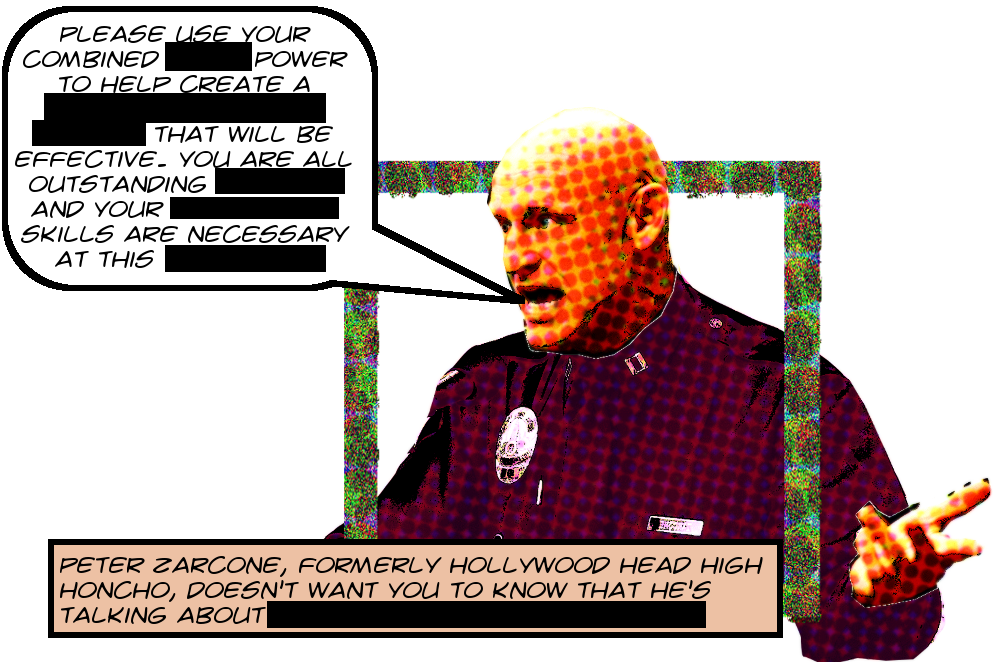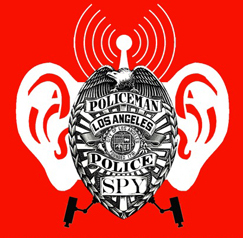🙨 Lizabeth Rhodes’s confidential memorandum
🙨 Complaint against Rhodes, Ciuffetelli, and Lium
The Los Angeles Police Department has something called the Office of Constitutional Policing and Policy. It sounds like pernicious crapola and pernicious crapola is precisely what it is. Forced upon LAPD by the 2000 consent decree, over the years the cops have used their cop superpowers to thoroughly weaponize OCPP against the people of Los Angeles. Just for instance, let’s talk about about Hamid Khan of Stop LAPD Spying, about the California Public Records Act, about a letter Khan sent to the Police Commission in August 2020 about LAPD’s refusal to comply with the law, and about Lizabeth Rhodes, the hard-nosed criminal lawyer in charge of OCPP.1
In September 2019 Khan filed a CPRA request with LAPD. LAPD, of course, will not comply with the CPRA2 at all, and they especially won’t comply for the likes of Khan. Khan wrote to the Police Commission about it on August 31, 2020 and then complained in person during public comment on October 6, 2020. Khan’s remarks apparently prompted Commissioner Dale Bonner to wonder if maybe, just maybe, there might be some substance to his complaint. Consequently criminal lawyer Rhodes wrote a top-secret highly confidential memorandum, which I just happen to have an actual copy of, to Commission Executive Director Richard Tefank.
This remarkable document is packed with lies and bullshit to a degree hitherto unseen even from the LAPD, an organization which has been growing fat on lies and bullshit for well over a century. It is worth discussing in great detail. Before I do that, though, don’t forget about LAPD officer Marla Ciuffetelli, who runs the CPRA unit, and who violates LAMC 49.5.5 by prioritizing CPRA requests from some reporters and absolutely obstructing requests from other reporters. Also don’t forget about Bryan Lium, Ciuffetelli’s boss, who violates LAMC 49.5.5 in exactly the same way.
Rhodes’s memorandum also violates LAMC 49.5.5, so this morning I filed a complaint against all three of these thuggish scofflaws with the City Ethics Commission, and if anything comes of it I will certainly let you know! Meanwhile, read on for a detailed discussion of Rhodes’s dishonest nonsense! Presented as a dramatic dialogue no less!!
Continue reading November 2020 — LAPD Constitutional Policing Boss Lizabeth Rhodes Wrote A Top Secret Memo To Police Commission Boss Richard Tefank About Public Records Requests From Stop LAPD Spying — I Have A Copy Of The Top Secret Memo For You! — And Also It’s So Full Of Bullshit And Lies That It Amounts To A Violation Of LAMC 49.5.5 — Which Is Why This Morning I Reported Rhodes And Her Co-Conspirators Marla Ciuffetelli And Bryan Lium To The Ethics Commission — And Here Is A Copy Of The 118 Page Report For You Also!








